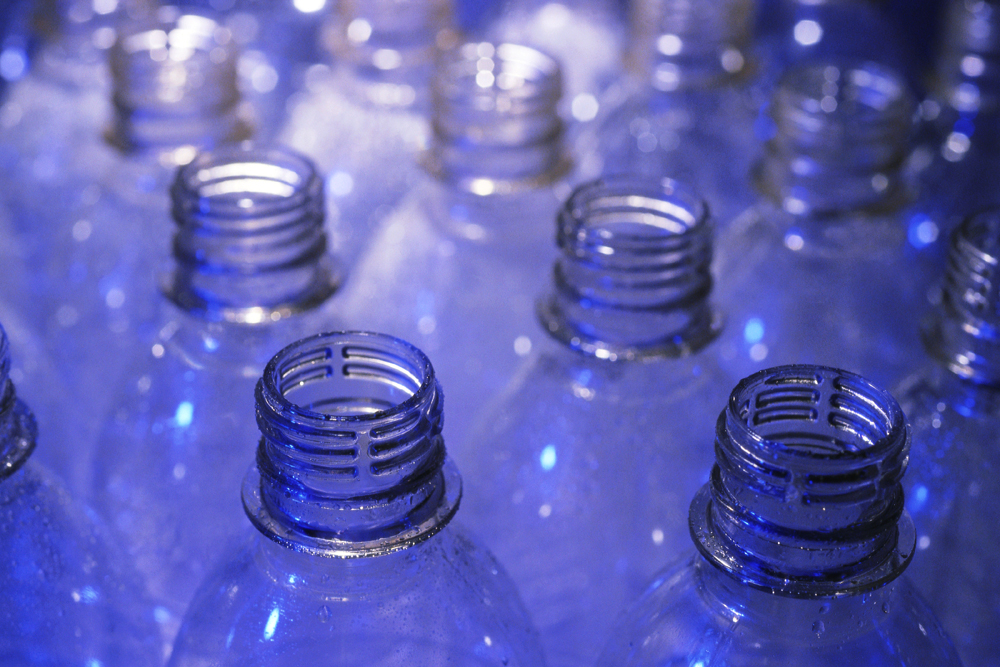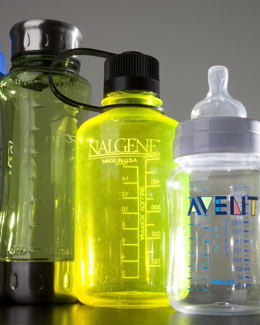January 27th, 2011 by BarbaraFicarraRN in Expert Interviews, Health Tips
No Comments »


Information circulating about the dangers of plastic containers has created fear and confusion. Are plastic containers toxic? Do harmful chemicals leach out into its contents? Do we need to discard all plastic containers?
Recently, I interacted in a live health chat on MedHelp about the safety of plastics. Scientist, Joe Schwarcz, Ph.D., Director of McGill University’s Office for Science and Society, talked about “The Real Truth About Plastics: What You Should And Shouldn’t Worry About.”
While Dr. Schwarcz states that some plastics like those made by Tupperware and Rubbermaid are safe to use, there are other plastics made of Bisphenol A (BPA) that may cause some concern, however he did not become alarmed.
There is extensive information on the safety of plastics, and reading some of it can easily cause panic and confusion, but the smartest step health consumers can do for themselves is to remain calm and don’t become alarmed. Gather the facts and determine what’s best for you.
The Facts About Bisphenol A (BPA)
Bisphenol A (BPA) is used to manufacture polycarbonate plastics. This type of plastic is used to make some types of beverage containers, compact disks, plastic dinnerware, impact-resistant safety equipment, automobile parts, and toys. BPA epoxy resins are used in the protective linings of food cans, in dental sealants, and in other products.
General exposure to BPA at low levels comes from eating food or drinking water stored in containers that have BPA. Small children may be exposed by hand-to-mouth and direct oral (mouth) contact with materials containing BPA. Dental treatment with BPA-containing sealants also results in short-term exposure. In addition, workers who manufacture products that contain BPA can be exposed.
How Does BPA Get Into The Body?
BPA can leach into food from the epoxy resin lining of cans and from consumer products such as polycarbonate tableware, food storage containers, water bottles, and baby bottles. Additional traces of BPA can leach out of these products when they are heated at high temperatures. Read more »
*This blog post was originally published at Health in 30*
December 9th, 2010 by Dr. Val Jones in Expert Interviews, Health Tips
1 Comment »
 Have you heard the new urban legend about plastic products? A growing number of celebrities and websites have been fueling a plastic paranoia, striking fear in the hearts of parents, fitness buffs, and microwave container users. Concerns reached such a fever pitch that I wondered if there may be something to this buzz: Can certain plastics harm our bodies or even cause cancer?
Have you heard the new urban legend about plastic products? A growing number of celebrities and websites have been fueling a plastic paranoia, striking fear in the hearts of parents, fitness buffs, and microwave container users. Concerns reached such a fever pitch that I wondered if there may be something to this buzz: Can certain plastics harm our bodies or even cause cancer?
But like the buzz surrounding vaccines and autism (there is NO link between the two), plastiphobia (as I like to call it) is not backed by any clear evidence of human harm. Chemist, Dr. Joe Schwarcz of McGill University (who has no financial ties to plastics manufacturers, by the way) has reviewed the scientific literature and has found plastics to be an extremely unlikely candidate for human injury. (Well, unless you hit someone over the head with a water bottle.) Dr. Schwarcz reviewed plastics safety in a live health chat on December 8th. You can review the entertaining conversation here.
Plastiphobia has fueled an entire industry of plastic-free baby bottles and “microwave safe” containers. Read more »
December 1st, 2009 by Dr. Val Jones in Audio, Expert Interviews
1 Comment »
 There has been a lot of media attention surrounding the safety of polycarbonate plastic products containing bisphenol A (BPA). BPA is found in polycarbonate, hard clear plastic products like eye glasses, bicycle helmets, and food containers, and also in epoxy resins that act as protective coatings on everything from food and beverage cans to steel pipes and car engines.
There has been a lot of media attention surrounding the safety of polycarbonate plastic products containing bisphenol A (BPA). BPA is found in polycarbonate, hard clear plastic products like eye glasses, bicycle helmets, and food containers, and also in epoxy resins that act as protective coatings on everything from food and beverage cans to steel pipes and car engines.
In the next week or so, the FDA is expected to provide a new analysis of the science behind BPA safety. To gain some insight into what the fuss is all about, Dr. Steve Novella and I interviewed Dr. Steven Hentges (Executive Director of the Polycarbonate/BPA Global Group of the American Chemistry Council) on a blogger briefing call.
You may listen to the entire conversation here (and please read on for my summary of the issues):
[audio:https://getbetterhealth.com/wp-content/uploads/2009/12/bpacall.mp3]
Read more »














